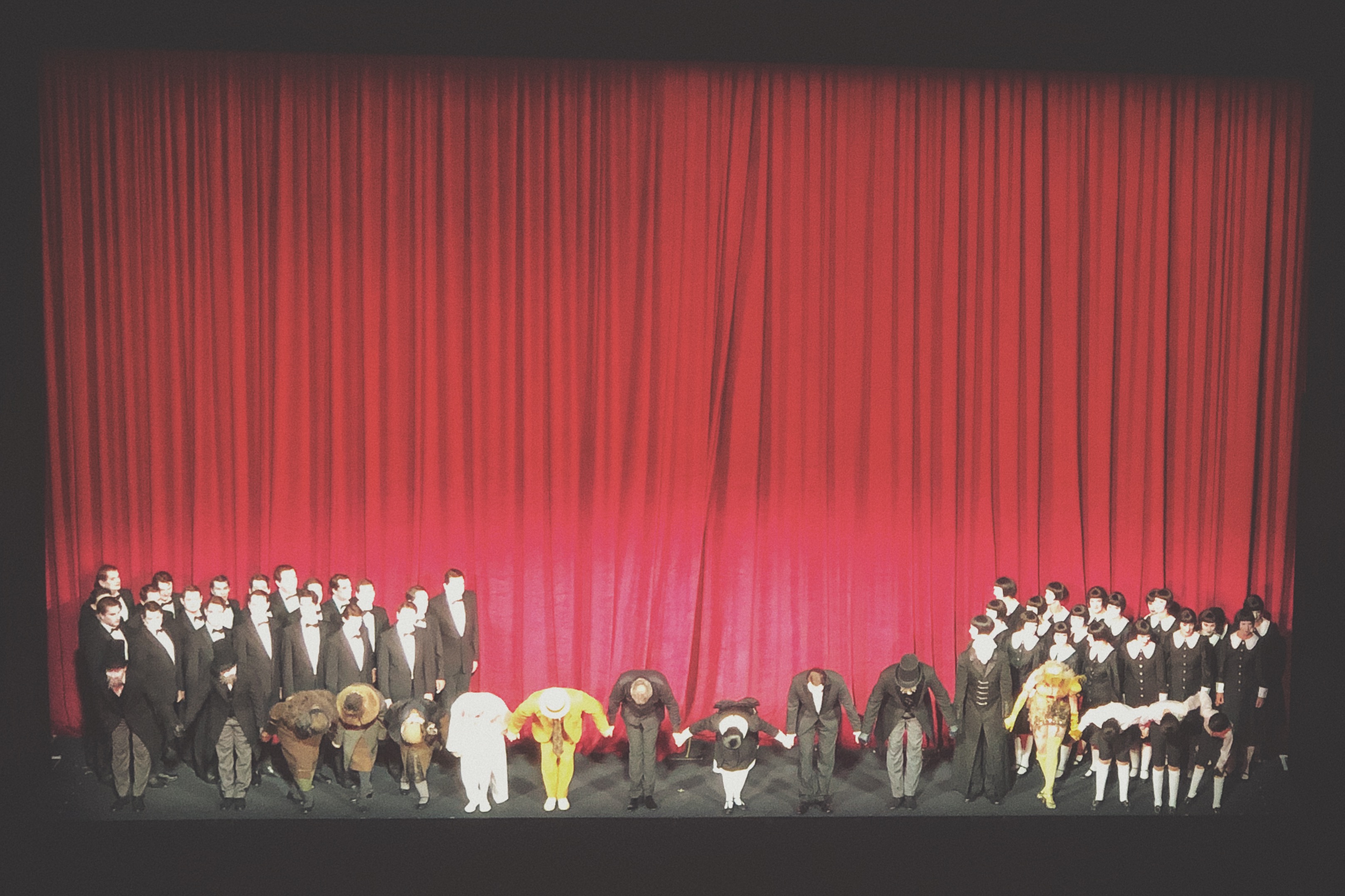这周去Lincoln Center听了 The Magic Flute ,非常新颖的将歌剧和默剧电影相结合,效果比单纯的歌剧更加生动形象。
The generative
Bubble Chamber by Jared Tarbell in 2003. 点击图框开始生成。
The Magic Flute

当记者问道,“What is The Magic Flute really about/魔笛 究竟 讲了怎样一个故事?” 时,主创之一的Paul Barritt简单概括道:
It’s a love story, told as a fairy tale.
另一名主创Barrie Kosky叙述的更加详尽:
A strange, fairytale love story, one that has a lot of archetypal and mythological elements, such as the trials they must undergo to gain wisdom. They have to go through fire and water to mature. These are ancient rites of initiation.
…
Despite all of the comedic elements, there is a deep loneliness in The Magic Flute. Half of the piece is the fact that people are alone: Despite the joy in Papageno’s bird catcher aria, it’s ultimately about a man who feels lonely and longs for love. At the beginning of the opera, Tamino is running alone through the forest. The three ladies are alone, so they are immediately attracted to Tamino. The Queen of the Night is alone–her husband has died, and her daughter has been kidnapped. Even Sarastro, who has a large following, has no partner at his side. Not to mention Monostatos, whose unfulfilled longing for love degenerates into unbridled lust. The Magic Flute is about the search for love, and about the different forms that this search can take.
我印象最深的在话剧第二场:为了救出女主角Pamina,Tamino必须接受试炼,而第一场试炼是保持沉默。据说《魔笛》的创作与共济会(Freemason)有相当深的联系,所以深究起来第二场各个试炼的选取(沉默、诱惑、火与水等)同共济会的入会仪式有相当的渊源。我在第一次听魔笛时当然并不知道这些,当时面对“沉默的试炼”,我的震撼来自于这样的反思:一个人要懂爱,Ta先得懂得如何同自己相处,而保持沉默其实便是考验男主角是否有独处的能力,是否能先“爱自己”。
与Tamino形成鲜明对比的是剧中的“小丑”人物Papageno,他不停的受到外界的干扰,无法静下心来面对自我。所以我印象很深的另一幕便是歌剧最后——当Papageno看似圆满的和他一直追寻的“心上人”在一起,生了一屋子的孩子之后,他被孩子们包围在家里时脸上浮现出的一种想要逃避的神情,我想他在那一瞬间内心是感到了一种疑惑和荒谬感的吧(按照事后我看到的资料1所言,捕鸟人Papageno代表只关心食色的世俗平民).
还有一幕,当Pamina看到Tamino一直保持沉默不理会她,由爱转为自责,开始有了轻生的念头,其实也可以联系到我最近看到的一个心理学理论,大概是说人的成长过程中,在处理和外界的关系时,自责的能力会早于自我谅解的那部分先形成。同样道理,夜后的执念、Monostatos的堕落也都可以从心理学的角度来考量。类似这样的看似“戏剧性”很强又在现实生活中能找到原型或例证的情节还蛮多的。
主创采访中我很喜欢最后Barrie对于这部剧里“音乐”的理解:
Finally, it is also an Orphic story–it is about the power of music, music that can move mountains and nature. After all, the opera is called The Magic Flute, not Tamino and Pamina! The magic flute isn’t just an instrument, it is the quintessence of music, and music, in this case, is synonymous with love. I think that’s the reason why so many people love this opera so much, because they see, hear and feel that it’s a universal representation of those looking for love, a journey that we all take time and time again.
感谢Mozart,不仅是musician,更是magician。

